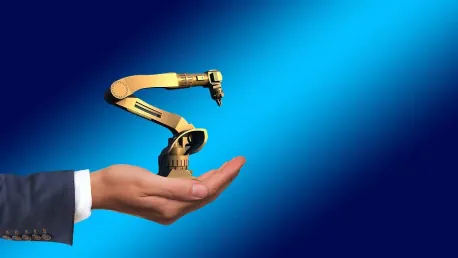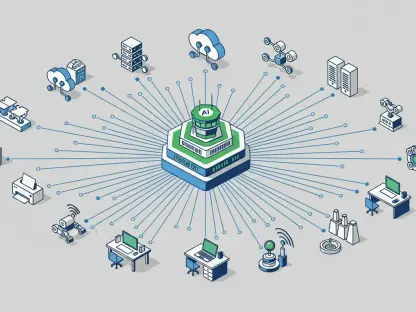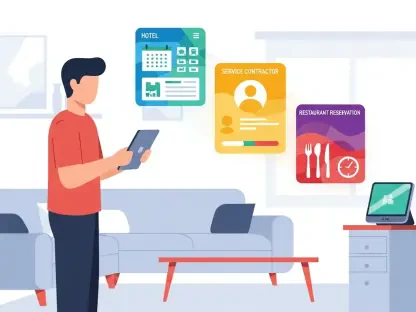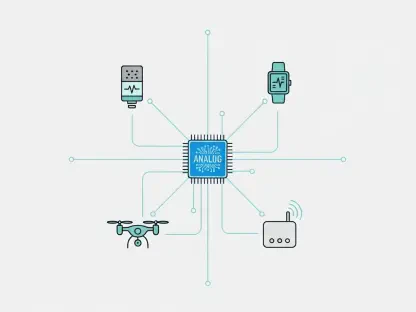The business landscape has seen many technological transformations, each new wave driving efficiency and productivity. One of the most groundbreaking shifts has been in the realm of robotic process automation (RPA), which revolutionized the way repetitive tasks are handled. However, as business operations become more complex, traditional RPA starts to show its limitations. The next frontier in automation is here, courtesy of UiPath’s agentic automation. This new approach integrates AI agents with traditional automation and human effort, promising a more dynamic and responsive business environment.
Introduction to Agentic Automation
At the heart of agentic automation is a step up from traditional RPA. While RPA focuses on automating routine, rule-based tasks, it falls short when tasks require adaptability and nuanced decision-making. Agentic automation bridges this gap. By combining AI agents with robotic and human elements, it effectively manages intricate and dynamic workflows. This doesn’t just streamline operations; it fundamentally changes how businesses function.
AI agents are not just pre-programmed tools. They possess intelligence, allowing them to adapt to changes and make informed decisions. This marks a significant evolution from the rigid rule-based frameworks of traditional RPA. By integrating AI models, human inputs, and robotic efficiency, agentic automation assures processes are optimized end-to-end. The deployment of AI agents enables businesses to handle a spectrum of tasks, from simple automation to complex decision-making scenarios, thereby extending the capabilities of traditional RPA much further.
AI agents, unlike their traditional RPA counterparts, have another crucial attribute: learning capability. They can analyze data trends and evolve their responses over time, enhancing the adaptability and precision of automated workflows. This scalability addresses one of the primary weaknesses of conventional RPA and provides businesses with a more resilient and responsive automation solution. As business environments continually change, the flexibility and responsiveness of AI agents will become increasingly essential for maintaining operational efficiency and competitiveness.
Collaboration Between AI Agents and Humans
The workspace of the future will see an unprecedented collaboration between AI agents, robots, and humans. Picture a scenario where AI agents take on tasks that require complex decision-making, leaving humans free to focus on strategic initiatives. Robots handle mundane, repetitive tasks. This specialized approach ensures that every element of the workforce can concentrate on what they do best.
By leveraging the strengths of AI agents and human ingenuity, businesses can achieve remarkable gains in productivity and efficiency. This collaboration fosters an environment where human creativity and critical thinking are complemented by the machine’s ability to process and act on large amounts of data swiftly. As a result, companies can deliver superior outcomes, increase customer satisfaction, and drive innovation.
AI agents, with their decision-making capabilities, harmonize the intricate dance between robotic precision and human judgment. The workforce thus becomes a trifecta of efficiency, intelligence, and strategic focus. This collaborative ecosystem means businesses can tackle more challenging projects, dedicate more resources to creative problem-solving, and maintain a higher level of service quality. The juxtaposition of AI and human skills creates a productive synergy that drives business success in today’s fast-paced digital world.
Such collaboration fosters a working environment where technology enhances, rather than replaces, human capabilities. Employees can focus more on tasks requiring emotional intelligence, creativity, and strategic thinking, while AI agents and robots manage process-driven activities. This division of labor not only optimizes efficiency but also improves job satisfaction and employee morale by reducing the burden of monotonous tasks. As a result, companies can leverage their human capital more effectively, unlocking new avenues for growth and innovation.
Empowering Businesses with Innovative Tools
UiPath offers several advanced tools to ease the transition to agentic automation. One such tool is the Agent Builder, which allows developers to create and deploy AI agents seamlessly. Businesses can customize these agents to meet their unique needs by either building them from scratch or selecting pre-built options from the UiPath Agent Catalog.
Another key tool is Autopilot, a GenAI conversational agent. Autopilot allows users to interact with AI agents via a user-friendly interface, making it accessible for both technical and non-technical staff. This democratization of advanced automation technology ensures wider adoption and smoother integration into existing workflows. By empowering all employees, businesses can realize the full potential of agentic automation.
The Agent Builder tool, for instance, significantly simplifies the process of creating customized AI solutions that align closely with specific organizational needs. Businesses can either start from scratch or tweak pre-made agents to fit their workflow seamlessly. This customization is critical for businesses with unique operational challenges that generic RPA tools may not adequately address. In effect, tools like Agent Builder make advanced automation more accessible, ensuring businesses of all sizes can harness the transformative potential of agentic automation.
Autopilot extends these capabilities further by offering a conversational interface that reduces the complexity of interacting with advanced AI systems. Such innovative tools bring powerful automation capabilities within reach for non-technical staff, democratizing the benefits of this transformative technology. Employees from various departments can engage with and benefit from automation without needing specialized training, thus accelerating the adoption and integration process. By lowering barriers to entry, UiPath equips companies to fully utilize agentic automation, maximizing productivity, and efficiency gains.
Strategic Benefits of Agentic Automation
The business case for agentic automation is compelling. It offers significant cost savings by automating complex processes, freeing human employees to focus on strategic and creative tasks. This shift not only enhances productivity but fosters a culture of innovation and continuous improvement.
Agentic automation also provides the agility needed to stay ahead in a rapidly changing digital landscape. The dynamic nature of AI agents ensures that businesses can adapt quickly to market fluctuations and evolving customer demands. This proactive approach results in sustained competitive advantages, setting businesses apart from their competitors.
At a strategic level, agentic automation enables businesses to reallocate resources more efficiently. Tasks that once required significant human intervention can now be handled by AI agents, freeing up human capital for higher-value activities. This reallocation translates to cost savings and more nimble organizational structures capable of responding swiftly to new challenges and opportunities. By eliminating inefficiencies and empowering human employees, agentic automation drives both short-term gains and long-term strategic benefits.
Furthermore, agentic automation enhances customer satisfaction by enabling quicker and more accurate responses to customer inquiries. AI agents can process substantial data in real-time, offering solutions and insights that would take humans much longer to generate. This swift action builds customer trust and enhances the overall customer experience, critical components for sustaining competitive advantage. The strategic benefits extend beyond internal operations to customer-facing interactions, creating a holistic advantage that permeates throughout the organization.
Challenges and Ethical Considerations
The business world has undergone multiple technological waves, each one enhancing efficiency and productivity. One of the most revolutionary advancements has been robotic process automation (RPA), which transformed how repetitive tasks are managed. Despite its success, traditional RPA faces challenges as business operations grow more intricate. This brings us to the next big leap: UiPath’s agentic automation. This innovative approach combines artificial intelligence agents with conventional automation and human input, offering a more adaptive and responsive business framework.
Unlike traditional RPA, which automates straightforward, repetitive tasks, agentic automation adds a layer of intelligence and adaptability. AI agents can make decisions, learn from data, and interact more seamlessly with human workers. This creates a more fluid and efficient work environment, capable of tackling the increasing complexity of modern business processes. By merging AI and human effort, UiPath’s agentic automation promises not just to improve productivity but to revolutionize the way businesses operate, making them more agile and competitive in an ever-evolving landscape.









